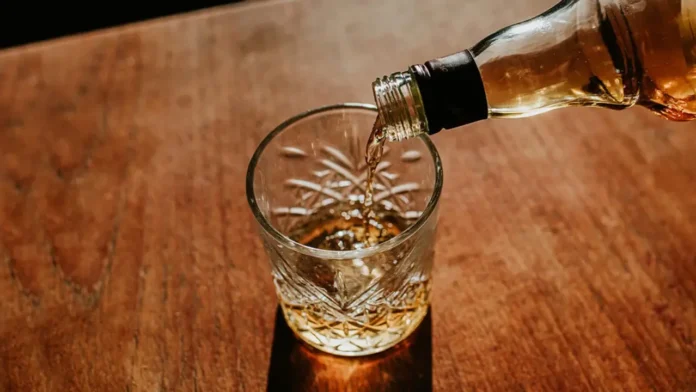In a distillery close to New Delhi, oak casks previously employed for bourbon and wine storage are accumulating, brimming with maturing whisky. The diligent workers are producing nearly 10,000 bottles daily of Indri, an Indian single malt recently acclaimed as the world’s finest whisky.
The distillery is surrounded by sugarcane and mustard fields instead of peat bogs. Piccadily, the owner of the two-year-old Indian brand, is increasing production and constructing a three-hole golf course to attract both whisky enthusiasts and casual drinkers in the whisky-loving nation.
As India emerges as a producer, not just a consumer, of whisky, its single malts are transforming the nation’s $33 billion spirits market.
Well-established international labels like Glenlivet from France’s Pernod Ricard and Talisker from Britain’s Diageo compete for retail prominence alongside local counterparts such as Indri, Amrut, and Radico Khaitan’s Rampur.
In contrast to numerous Asian nations where beer holds sway in alcohol sales, India stands out as predominantly a whisky-drinking nation. According to industry executives and analysts, the Indian whisky landscape has experienced significant shifts due to global awards, rising affluence, and a surge in drinkers exploring new brands during the COVID-19 lockdown.
For years, Aditya Prakash Rao preferred foreign brands, but now he is progressively choosing Indian malts, both for personal consumption and as gifts during festive seasons.
Indian whisky gives Rao a sense of national pride – and goes well with Indian food – the lawyer said. “Nothing beats Indian malts in pairing with our kind of food, which is spicy. I love it.”
Indri’s Diwali Collector’s Edition, priced at $421, clinched the “Best in Show” title at the Whiskies of the World Awards blind tasting in San Francisco in August, surpassing competitors from Scotland and the United States.
Acknowledging the surge in the Indian whisky trend, global brands that traditionally emphasized single malts aged in Scotland are now turning their attention to Indian whiskies to capitalize on the growth in one of the world’s largest whisky markets.
With Bollywood stars and Indian music, Pernod on Wednesday uncorked its first made-in-India single malt, the $48 Longitude 77, with plans to expand sales to Dubai and then the rest of the world.
Continue Exploring: Pernod Ricard unveils its first made-in-India single malt, Longitude77
“We are extremely bullish about this category. It has seen unprecedented growth,” said Kartik Mohindra, Pernod India’s chief marketing officer.
Last year, Diageo, Pernod’s major competitor, introduced its initial Indian single malt, Godawan, named after a sizable and endangered Indian bird. This product is available in five international markets, including the United States.
“We seem to be moving from whisky in India to Indian whisky – within India and globally,” said Vikram Damodaran, Diageo’s India chief innovation officer.
According to Euromonitor data, Pernod’s Glenlivet, traditionally the leading single malt in India, experienced a 39% volume growth last year. However, it was surpassed by Amrut, which saw a remarkable 183% surge.
According to data from IWSR Drinks Market Analysis, Indian single malts witnessed a remarkable 144% surge in 2021-22, outpacing the 32% growth observed in Scotch. The forecast for the period until 2027 anticipates a yearly consumption growth of 13% for Indian malts, surpassing Scotch, which is projected to grow at 8% annually.
Piccadily Distilleries, the producer of Indri, aims to increase its capacity by 66% to 20,000 liters (5,300 gallons) per day by 2025, extending its reach beyond the 18 foreign markets that currently constitute 30% of its sales, according to founder Siddhartha Sharma.
The intention is to increase the count of casks to 100,000 at the expansive distillery located in a farming region 160 km (100 miles) north of India’s capital.
The indigenous brands come with a substantial price tag: Indri begins at $37 per bottle, Amrut at $42, and Rampur at $66 in stores near New Delhi. In contrast, Pernod’s Glenlivet is priced between $40 and $118, varying with age.
During the debut of Longitude 77, Pernod treated CEOs, diplomats, celebrity chefs, and other specially invited guests to the new single malt, as well as cocktails crafted with it, incorporating regional ingredients such as Kashmiri saffron and Alphonso mangoes.
Sanjeev Banga, President of International Business at Radico, stated that the company anticipates doubling Rampur sales annually. While foreign sales currently contribute 75% to its business, Radico aims to concentrate on expanding the domestic market.
The biggest endorsement of the category, he said, “is that you have both Diageo and Pernod coming up with an Indian single malt.”
“Otherwise, they were only talking about their mainstream foreign brands,” Banga said. “They realise this is a category of the future.”





